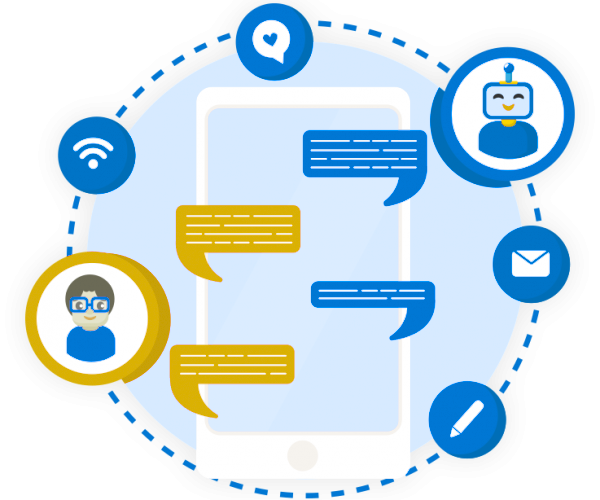
Conversational AI for internal support for
Legal
Our cutting-edge solution streamlines internal support processes, providing instant assistance and guidance to legal professionals. Through natural language understanding and advanced automation, our Conversational AI platform enhances efficiency, accelerates workflows, and ensures seamless access to critical information. Experience unparalleled productivity and optimization in legal operations with our tailored Conversational AI solution.
Legal Departments
How we Help

Documentation
Legal Research and Documentation
- Conduct legal research and analyze case law.
- Summarize key findings and precedents.
- Stay updated on regulatory changes and legal trends.
Contract Management
Streamline Your Contracts
- Draft contracts based on predefined templates.
- Review contracts for errors or inconsistencies.
- Manage contract renewals and expirations.


Compliance Monitoring
Ensuring Regulatory Adherence with Precision Monitoring
- Monitor regulatory changes and compliance requirements.
- Provide real-time alerts and updates on legal changes.
- Proactively address compliance issues.
Support
Legal Helpdesk and Support
- Serve as the first point of contact for legal inquiries.
- Answer common legal questions and provide guidance.
- Route complex inquiries to appropriate legal personnel.


Litigation Support
Strategic Guidance and Organization for Legal Matters
- Organize and categorize case-related documents.
- Track deadlines and court filings.
- Provide insights through data analytics for better case management.
Law firms
Core Benefits
Enhanced Efficiency
AI chatbots automate routine tasks such as legal research, contract drafting, and document management, freeing up valuable time for legal professionals to focus on more complex and strategic matters.
Improved Client Service
AI chatbots provide instant responses to client inquiries, ensuring round-the-clock availability and timely support. This enhances client satisfaction and strengthens client relationships by providing swift and accurate assistance.
Cost Savings
By automating repetitive tasks and streamlining workflows, AI chatbots help legal firms reduce operational costs and increase productivity. This enables firms to deliver high-quality legal services at a lower cost, improving profitability and competitiveness.
Enhanced Risk Management
AI chatbots can monitor regulatory changes, analyze compliance risks, and provide real-time alerts to legal teams. This helps legal firms stay updated on evolving regulations and proactively address compliance issues, reducing the risk of legal disputes and penalties.
FAQ
Frequently Asked Questions
What types of legal tasks can AI chatbots assist with?
- AI chatbots can assist with various legal tasks, including legal research, contract drafting, document review, compliance monitoring, and providing legal guidance to clients and internal stakeholders
How secure is the information shared with AI chatbots?
- AI chatbots are designed with robust security measures to ensure the confidentiality and integrity of the information shared. They use encryption protocols and adhere to strict data privacy regulations to protect sensitive legal data.
Can AI chatbots replace human lawyers?
- AI chatbots are not designed to replace human lawyers but rather to augment their capabilities and streamline legal processes. While AI chatbots can handle routine tasks and provide basic legal assistance, human lawyers bring expertise, judgment, and empathy to more complex legal matters that require human intervention.

Testimonials
Our Customers Say
“Hi Contrary to popular belief, Lorem Ipsum is not simply random text. It has roots in a piece of classical Latin literature from 45 BC, making it over 2000 years old.”
Kelly
CEO“Hi Contrary to popular belief, Lorem Ipsum is not simply random text. It has roots in a piece of classical Latin literature from 45 BC, making it over 2000 years old.”
Kips Leo
Web Designer“Hi Contrary to popular belief, Lorem Ipsum is not simply random text. It has roots in a piece of classical Latin literature from 45 BC, making it over 2000 years old.”
